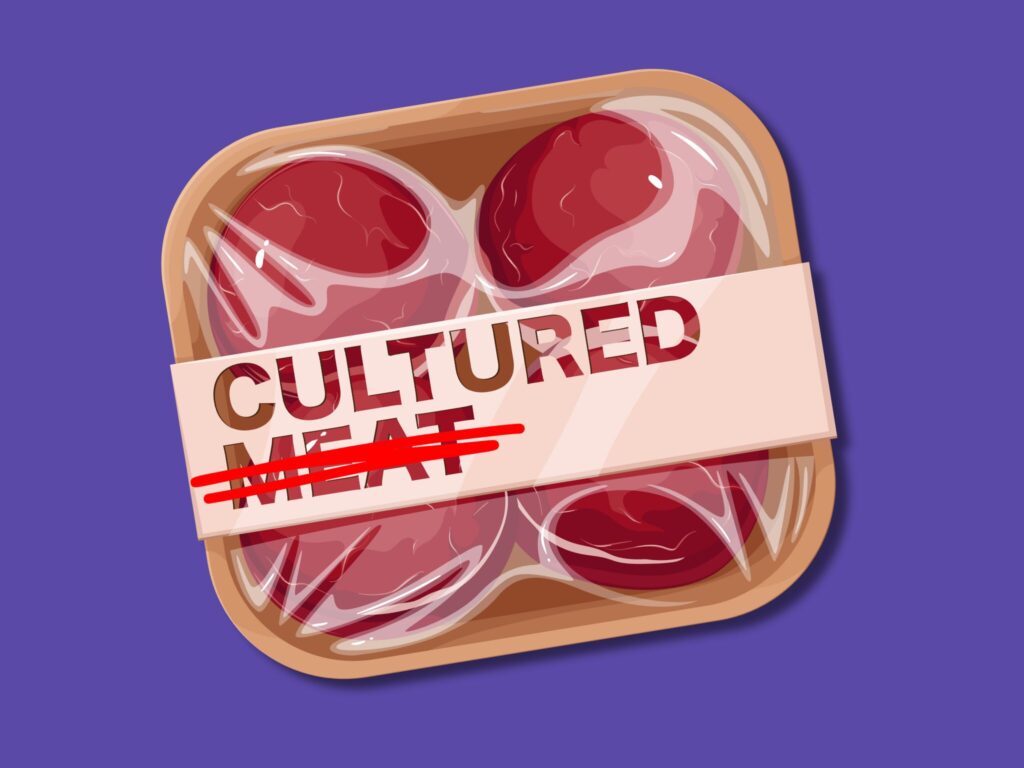Arizona Republicans Attempt to Ban Cultured Meat with Two New Bills
6 Mins Read
In yet another move targeted at the alternative protein industry, House representatives in Arizona have proposed bills prohibiting the “misbranding” of meat alternatives and banning cultivated meat altogether. The latter’s legislation would allow people to sue cultured meat companies for up to $100,000 if they hurt their business.
Two months after a lawmaker in Florida introduced a proposal hoping to be the first US state to ban cultivated meat, Arizona is following suit with its own duo of bills looking to outlaw the production and restrict the labelling of meat analogues.
Arizona House representative Quang Nguyen has drafted HB 2244, a bill that would make it illegal to “intentionally misbrand or misrepresent” an alternative meat product as meat, while fellow Republican David Marshall has gone a step further with an attempt to ban the sale or production of any cultured meat product.
It’s a step in the opposite direction from the national policy – in June last year, the USDA granted clearance for the production and sale of cultivated chicken to Californian companies Upside Foods and Eat JUST, becoming just the second country to do so (after Singapore). The US is also home to the largest number of publicly announced cultured meat companies, representing 60% of global funding in the space.
Arizona’s proposed labelling ban

Nguyen’s HB 2244 aims to illegalise the ‘misrepresentation’ of meat on plant-based and cell-cultured products, in the same vein as many other arguments used to ban meat-related terms on alternative protein products globally.
The bill states that foods “not derived from livestock or poultry” cannot be labelled as poultry or meat products. It suggests that this “misbranding” can be done in several ways, including affixing a false or misleading label, using a historically meat-related term, or representing a product as meat if it “is a cell-cultured food product” or “a synthetic product derived from a plant, insect or other source”.
The proposed legislation would allow the health department to take complaints and investigate violations, as well as seek injunctions or other civil reliefs to “restrain and prevent violations”. Each day a breach occurs is treated as a separate offence, with a maximum penalty of $100,000 per violation.
Nguyen told local outlet Capitol Media Services that the bill isn’t intended to block companies from offering or consumers from buying these products, but stressed that it was a matter of transparency and disclosure. “The bill doesn’t ban lab meat,” he said, using a term much derided by the industry. “But if it’s lab meat, it needs to be labelled that. If you don’t want to buy lab meat, then don’t buy it. That’s all.”
He added that the idea of cultured meat is actually appealing. “There are a lot of poor people out there that actually could use lab meat,” he explained, reflecting on his journey as a refugee from Vietnam who grew up in a low-income household. “If you wanted to throw lab meat up on my table when I was a little kid growing up in the war, I’d be chewing on that.”
Could Arizona ban cultured meat?

Marshall, however, does want to prohibit people from buying or selling cell-cultured meat. In HB 2121, he moves to ban the sale or production of these foods for both human and animal consumption, calling it “a matter of statewide concern necessary to protect public health”.
There is a noted focus on the cattle industry, which forms one of Arizona’s five Cs of the economy (alongside copper, cotton, citrus and climate). “The production and sale of lab-grown, cell-cultured animal products threaten to harm this state’s trust land beneficiaries and the highest and best use of state trust land, which includes the lease of state lands to ranchers for livestock grazing to fund public schools and other public institutions,” reads the bill.
Calling the cattle ranching industry “integral to this state’s history, culture, values and economy”, Marshall argues that the ban is “necessary to protect this state’s sovereign interests, history, economy and food heritage” – a tact similar to the one adopted by Italy in its ban on cultured meat.
Anyone found violating the legislation would be subject to a civil penalty of up to $25,000, but more notable is the stipulation that anyone whose business is “adversely affected” by the sale of cultivated meat can file a suit to stop the act and collect damages of up to $100,000 (plus legal fees).
The meat-climate disconnect shapes up global bans

The proposed ban comes a couple of months after Florida House representative Tyler Sirois introduced a bill to ban the production, sale, holding and distribution of cultivated meat in the state, with criminal penalties imposed on violators. It follows Texas governor Greg Abbott’s signing of a bill requiring clear labelling of plant-based and cultivated meat, seafood and egg products, as well as Nebraska’s proposed Real MEAT act mandating the word “imitation” on alt-protein.
These bills are aimed at protecting America’s livestock industry, which already receives 800 times more funding than plant-based and cultivated meat companies. This is despite cultured meat having a much lower impact on the environment than conventional meat, with alt-protein think tank the Good Food Institute (GFI) predicting that if produced via renewable energy, the former can reduce emissions by 92%, require 95% less land, and use 78% less water than cattle-derived beef.
But this hasn’t penetrated the viewpoints of most Americans, who eat six times as much red meat as the amount recommended to keep in line with the 1.5°C heating goal (which itself has been breached). In July, a Washington Post and University of Maryland poll found that 74% of Americans don’t believe eating meat has any impact on climate change.
However, there has been some support from the central government for alternative proteins. The Biden administration has set aside $6M for alt-protein R&D at the USDA’s Agricultural Research Service, while its $10M NIFA grant for alt-protein led to the creation of the Tufts University Center for Cellular Agriculture in Massachusetts.
Arizona and Texas should look into following California’s lead – the state is home to both Upside Foods and Eat Just, as well as one of the two restaurants currently serving cultured meat in the country. In July 2022, it became the first state to invest in research for these foods, allocating $5M of the state budget for alt-protein research.
How Arizona’s bill is received remains to be seen, but climate activists would hope that it doesn’t go the same way as Italy or Romania (which has also voted to prohibit cultured meat, with fines between €40,000 and €60,000). France, meanwhile, is deliberating its own ban.
“Consumer demand and science-based food safety requirements should determine what’s sold in our supermarkets, not arbitrary government regulation,” GFI policy director Curt Chaffin told Capitol Media Services. “In a time when American farmers and food producers are facing stiff competition around the globe, politicians should not be policing what’s made and sold in Arizona.”



